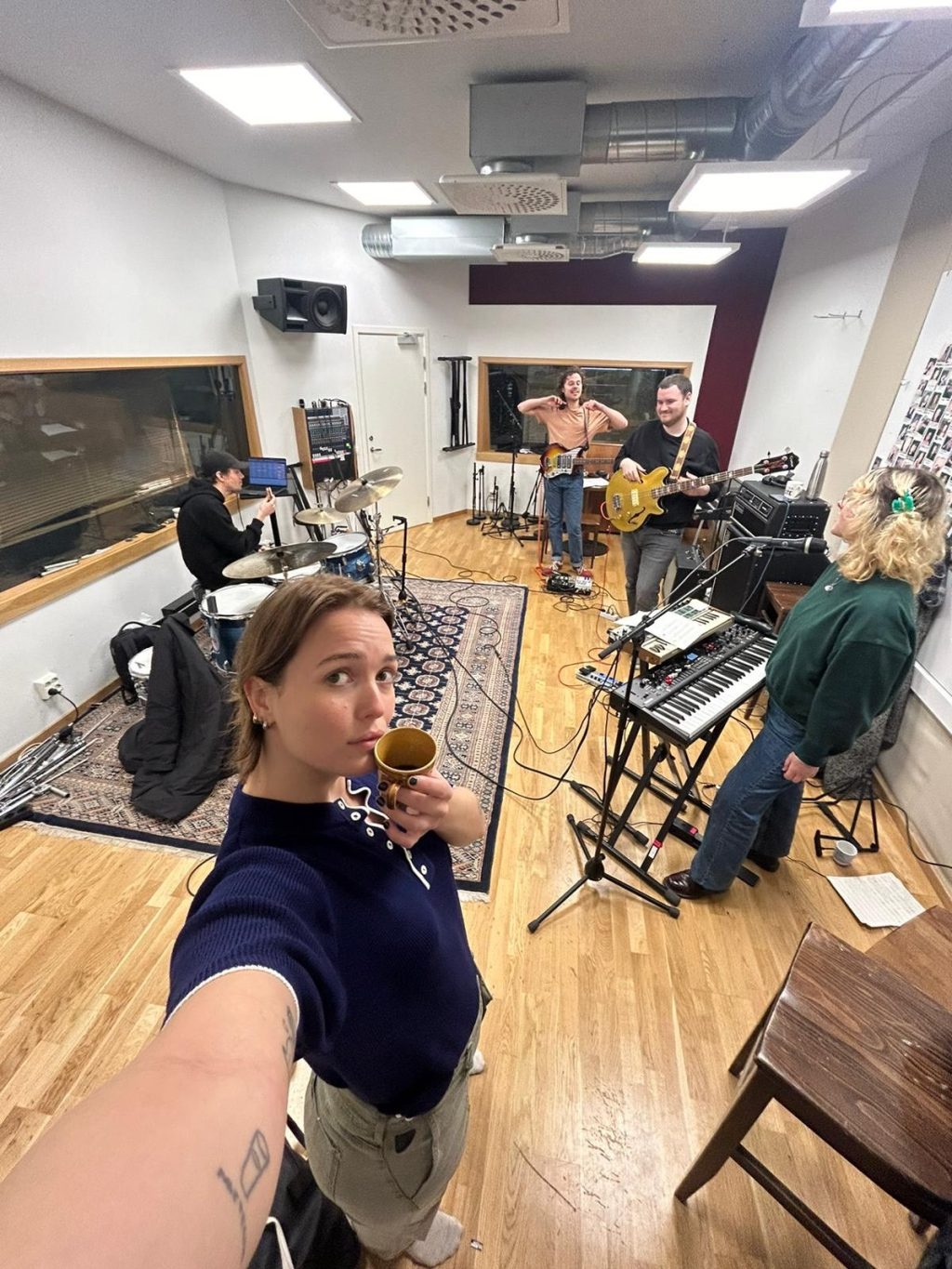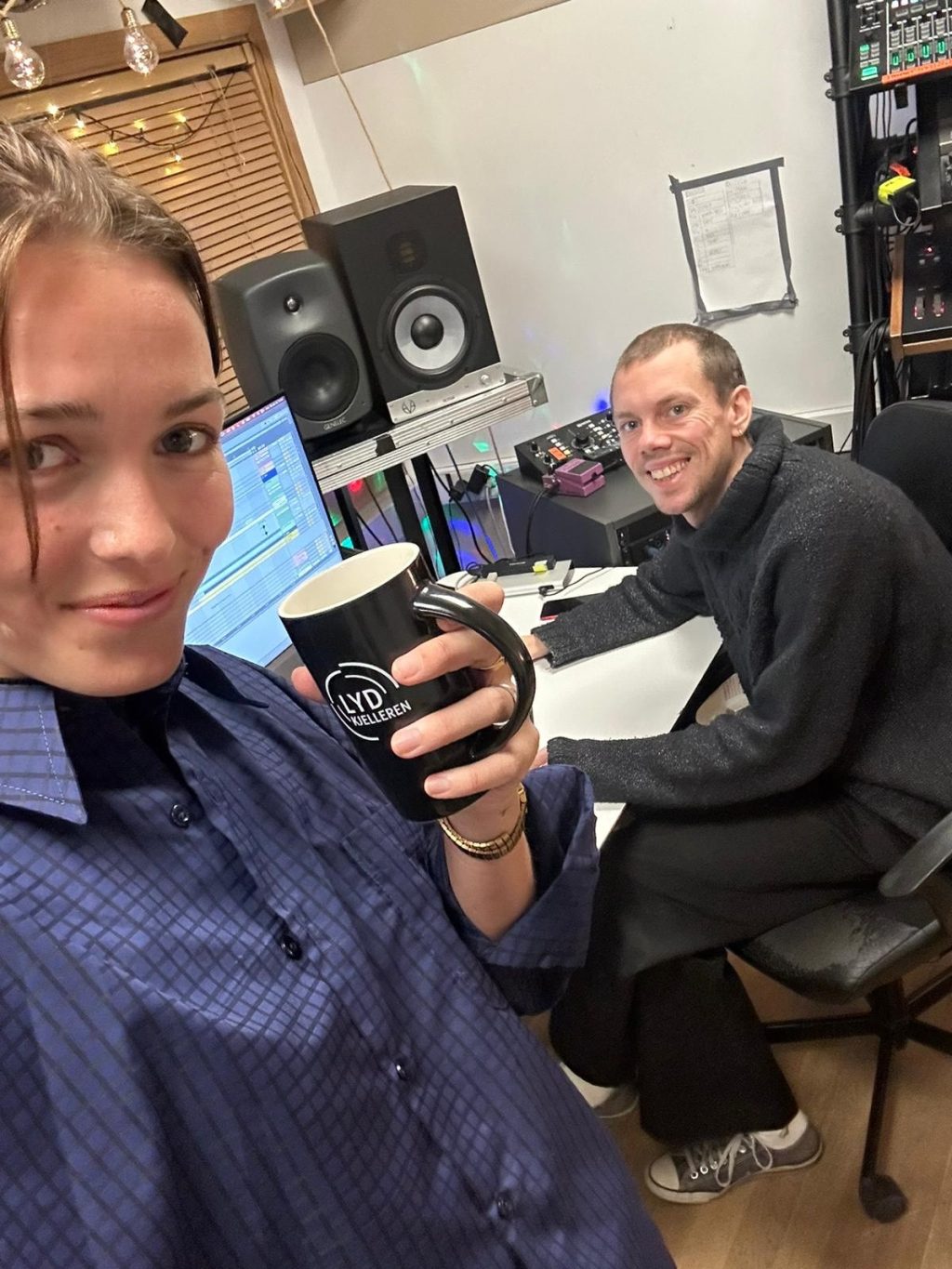Resa Saffa Park – Harmony, passion and intuitions
Retro disco sounds meet with jazz pop aesthetics. Let’s meet the owner of this formula, Resa Saffa Park. We take a closer look at the world of the Scandinavian artist. Resa who touched the souls of many with “Candles” and bonded emotionally, especially with Turkish audience, is returning to Zorlu PSM on April 20!
In our dialogue, we talk about Resa’s instincts, the moments she shares and the local textures she enjoys. Breaking down her inspiration and placing it within memories, we find ourselves in a layered narrative about her music and what lies behind it.


Elements of jazz, soul and grunge are very present in your compositions. How does this
process take shape while you mix these textures?
I think that this has been both a conscious decision based on what elements in music and life that I
like and that I feel can represent me and my demeanor and disposition as well as it is an intuitive
result of my creations.
You take Nirvana as one of your great inspirations, to us this inspiration shows itself in your writing and gloom. What is your main takeaway from the band?
I have thought that some people might not understand my inspiration to Nirvana, so I am glad that
you do. I think that sometimes my greatest fear is to be perceived as polished and pleasing as a
female singer because of my soft and feminine voice. I was so inspired by male singers when I
was younger, often more than female singers, because there is a roughness to the male voice
more obvious than with a female’s, and I think I envied that when I was younger. Later I was
introduced to female singers with so much edge and soul such as Billie Holiday and Beth Gibbons,
and I realized that I had just been looking in the wrong genre, as I was mostly familiar with pop
music. Nirvana as well as Radiohead were two of the bands that really made me feel deeply in my
teens, with their quirks and opposition against the “popular” and “perfect”. I keep identifying in the
outcasts, and I still think that the outcasts are the most interesting people and do the most
interesting things.
“Candles” is a fan favorite with its emotion packed delivery and gloomy attitude. Can you
tell us your take on the song? How has your relationship with “Candles” taken shape since
its release, do you share the same relationship as Kurt Cobain’s fan favourite?
I wrote Candles one spring day where my friends and I were planning on meeting down at a little
green grass park just outside my apartment building in Oslo. I had been feeling a bit gloomy and
we all agreed that sitting out in the first rays of sun would do us all good. I had an odd feeling of
longing to somewhere I didn’t know where was, so as I was planning on going down to my friends
where I could see them sitting, I picked up my guitar to play a bit before going. That’s when I wrote
candles. It just flowed out of me as a script and melody to what I was feeling. It felt like magic and I
felt so much lighter after that. I put my guitar back and went down to my friends in a relieved mood.
No one really cared about the song when I played it in Oslo and it was never mentioned as
anyones favorite of my songs, but for me it was always the most special one. Until one day when
the director of the series Ragnarok I played in came to me and said, out of the blue: “Out of all your
songs, is Candles the song that truly is you?” He hit the nail on the head with that one and I felt
understood. Candles was at that time the one special song that truly was me because I didn’t
compromise on anything or adapt to anything with it. It was just Candles. It still is and I was so
moved by the Turkish audience singing it as their favorite. It truly made me feel understood. I’ve
been existentially calmer since then.
It is particularly valuable because I know so well how a gloomy piece of music can resonate with a
gloomy sense of being, and how it can make you feel less alone. It can feel almost like being
saved some how. I had this feeling with listening to Nirvana.
Apart from being a musician you also are an actress. How do these two worlds clash? Do
you ever find your characters interfering with your music or vice versa?
Not really, I have yet to play a deep character in a serious story. For me acting has to this point
been a fun experience, but my characters have mostly been exaggerated drama and comedy
based. I am looking forward and hoping to play the opposite one day. I think that will be more
cohesive with my style in music, but I really do appreciate acting and how it has so far not been
related to my music at all.
You’ve been to Turkey many times and it’s your second time in Zorlu PSM. What drives you
back here over and over?
I was so warmly welcomed last year in October with the audience in Ankara being the first ever to
sing my song back to me. It was Candles. The following days I was playing there and some time
after when I just stayed by my self in Istanbul was the best days of my life. I was born in Dubai and
the singing from the minarets in Istanbul (all though annoying a few I heard) gave me an immense
sense of reminiscence to my days in Dubai. I also met so many wonderful listeners while selling
merch after my concerts. I was in awe of how bright, warm and chill they were. It was like meeting
my friends. I also was lucky to meet many open and interesting people the following days. Istanbul
is also my favorite city now with their stylish people, cool bars, cafes, soulful streets and cats and I
cannot wait to be back.
Artist-audience relationship is a crucial concept that highlights your performance. How do
you manage to open-up in front of thousands? Does it make you feel vulnerable at times?
It is so much easier to do so with an audience you can feel understands it, because then it doesn’t
feel like its just me, its rather a vulnerability we all in the room share when the music is playing.
Born in Dubai with Nordic ethnicity, studied in Liverpool and currently based in Oslo. How
do the different textures of the cities affect you? Furthermore, how does identity take shape
in your art?
I think that the different cultures as well as having had various homes made me always feel a bit
like an outsider everywhere, but I have come to understand that for me, it as also a privilege,
because I leaned on myself more and allowed myself to do things different than what everyone
else did. I was also so used to different people that I have never understood nor liked total
conformity, which I think is good for making art.
Your album colors have a distinct aesthetic with vintage and minimalistic feel. Muted
colors and a color grid is also present in many of the covers. How do you conceptualize
your music as an image and what is the process of matching the cover art with the album?
I love to intellectualize my intuition. Everything I make is primarily intuition, but I have a need to
intellectualize it by understanding why I have istinctively chosen this or that, in terms of color or
style. I think I romanticize old era’s because I have a constant feeling or train of thought in
existentialism. I feel strong nostalgic feelings from earlier era’s of my life, as well as from eras I
have never lived. I like to entertain the thought that nostalgia is a combination of romanticizing,
feeling gratitude as well as being ungrateful and understanding how unimportant oneself is
compared to all lives and lifetimes. In a sense it’s like living in constant melancholy of all those things together and understanding that life itself is very much this. I feel like Vintage gives me a pass to pretend and to play a bit. I don’t want to just succumb to the current times. I want there to be elements of a world that is beyond ‘now’ and bigger than my lifetime. As an example, I can look at a watch from 2024 and not think much of it, but if I see a watch from for example the 1950’s, or even multiple ones from different eras, it can make me cry. I am so moved by what design represents existentially that I love being around items like this. It’s like the feeling you can get if you suddenly see an expired design of a milk carton you used to be so familiar with. Maybe I like these things because they remind me of the value of life. An odd religion. This is in my music too, and this is why I don’t understand commercial pop music because I need there to be reason and reflection in art. I need to be moved, not just entertained. I think we all do.